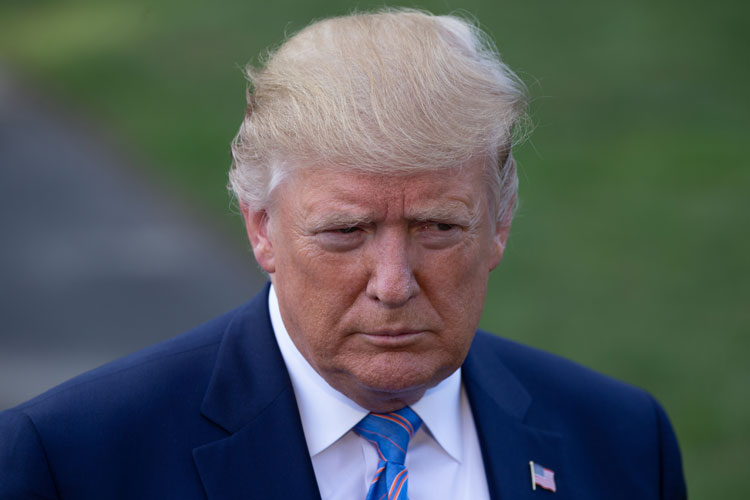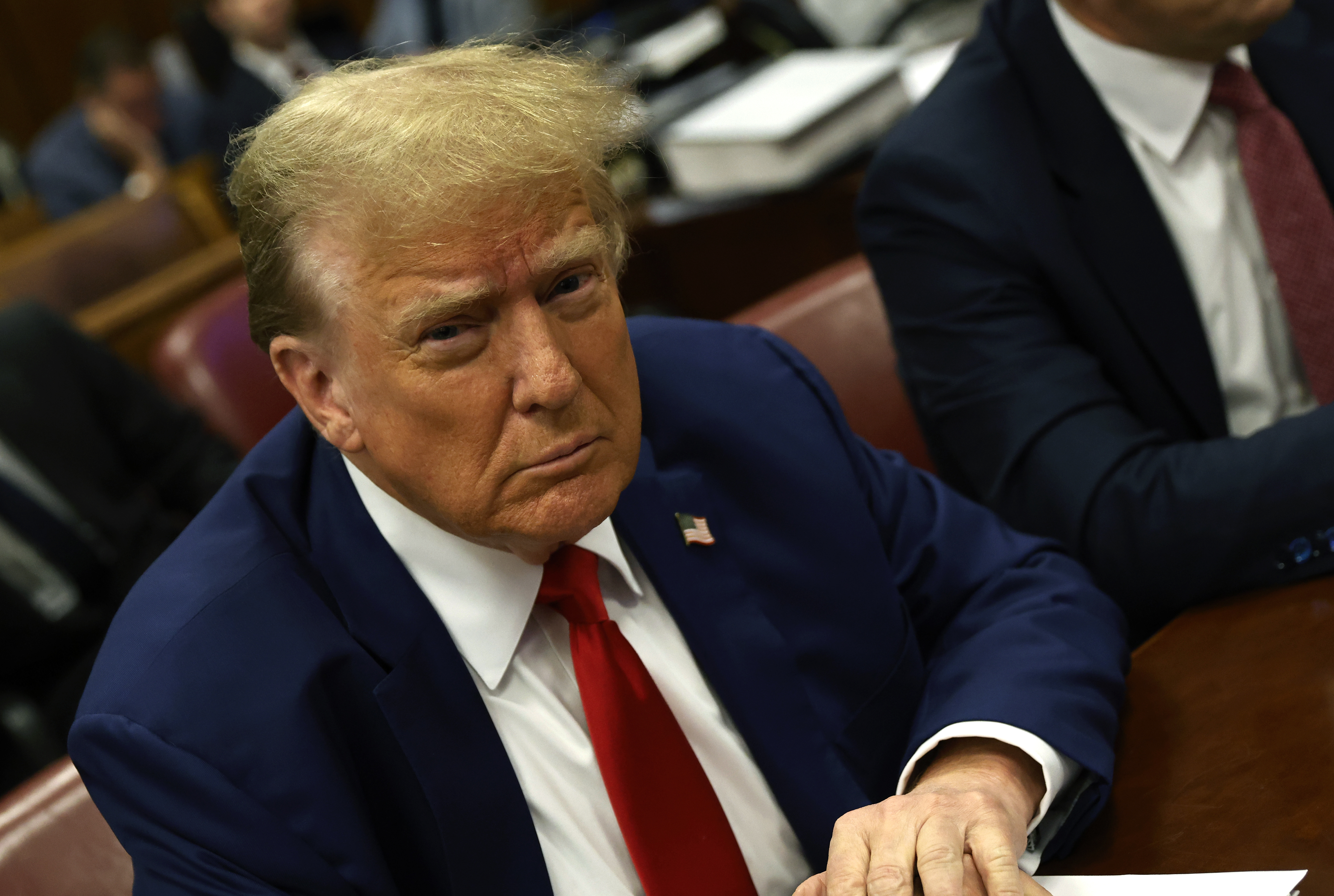Does executive privilege still protect Trump after his term ends? Fight brews over congressional subpoenas

Former President Donald Trump in August 2019. Photo from Shutterstock.
Former President Donald Trump is asserting executive privilege to fight a request for presidential records sought by the House Select Committee investigating the Jan. 6 U.S. Capitol riot. Can he do that after his presidential term ends?
A 1977 U.S. Supreme Court decision says a former president can make the assertion, but the privilege is not absolute, according to the Volokh Conspiracy, Lawfare and a Washington Post op-ed.
The House committee is seeking documents from the National Archives and testimony by former Trump aides, according to the Associated Press, the Hill and NBC News.
President Joe Biden has already told the National Archives that he agrees to the request for a first set of documents. Withholding the records is “not in the best interests of the United States,” given “unique and extraordinary circumstances,” said White House counsel Dana Remus in a letter to the National Archives.
Trump has directed potential witnesses not to testify and told the National Archives in a letter that the committee request is “extremely broad,” and the requested records “unquestionably contain information protected from disclosure by the executive and other privileges, including but not limited to the presidential communications, deliberative process and attorney-client privileges.”
A Supreme Court case that considers the question is Nixon v. Administrator of General Services, decided in 1977. In that case, former President Richard Nixon challenged a new law, the Presidential Records Act, which required the preservation of presidential records with historical value, including Nixon’s White House tapes, and provided for eventual public access to some of the records. The Supreme Court said the law did not violate the principle of separation of powers.
But the court decision, known as Nixon II, recognized that a former president does retain some right to assert executive privilege, according to the Washington Post op-ed, written by Laurent Sacharoff, a professor at the University of Arkansas School of Law, and the Lawfare post, written by Jonathan Shaub, an assistant professor at the University of Kentucky J. David Rosenberg College of Law.
The Nixon II court did not resolve how to resolve competing claims of privilege between former and incumbent presidents, however.
An executive order by then-President Barack Obama tells the National Archives how to resolve competing directives. The order directs the National Archives to provide notice to a former president before releasing potentially privileged records from that administration. If a former president invokes executive privilege, the sitting president gets to make the call on releasing the documents. The Trump administration did not disturb that order.
Sacharoff’s op-ed said the Nixon II decision reached the wrong conclusion. In his view, a president’s ability to invoke executive privilege should end with his presidency, and it should be up to the sitting president to make the determination.
Sacharoff said Trump’s assertion of executive privilege illustrates the problem.
“He has no reason to faithfully weigh, as an elected official would, the need of the public to understand the Jan. 6 attack against the need for confidentiality,” he wrote.
Even if Trump does assert the privilege in litigation, it isn’t absolute, Sacharoff said, as the Supreme Court decided in the Nixon II case.
Writing at the Volokh Conspiracy, Jonathan H. Adler, a professor at the Case Western Reserve University School of Law, disagreed with Sacharoff’s view that the incumbent president should make executive privilege decisions.
“A current president may be all too willing to allow disclosures that may undermine the reputation of a predecessor of the opposing party and may not be fully aware of why certain documents or materials raise legitimate privilege concerns,” Adler wrote.
But invocation of the privilege by a former president doesn’t necessarily mean that it should prevail, Adler said.
“In this case, the legislature’s interest in obtaining the relevant information is quite substantial,” Adler wrote. “Congress is pursuing an investigation of potentially criminal activity, including efforts to encourage (and perhaps incite) violent action at the Capitol and to overturn the results of an election, and such information should help inform questions such as whether Congress should revise the Electoral Count Act, alter its security protocols, or take other measures to prevent a repeat of the events of Jan. 6.”
A legal battle could create delays that continue past the 2022 midterm elections. If Republicans gain control of the House of Representatives in those elections, the select committee “would almost certainly be disbanded,” Shaub wrote. “As a result, litigation by Trump could very easily prevent the committee from receiving any presidential records from the National Archives.”
Write a letter to the editor, share a story tip or update, or report an error.


